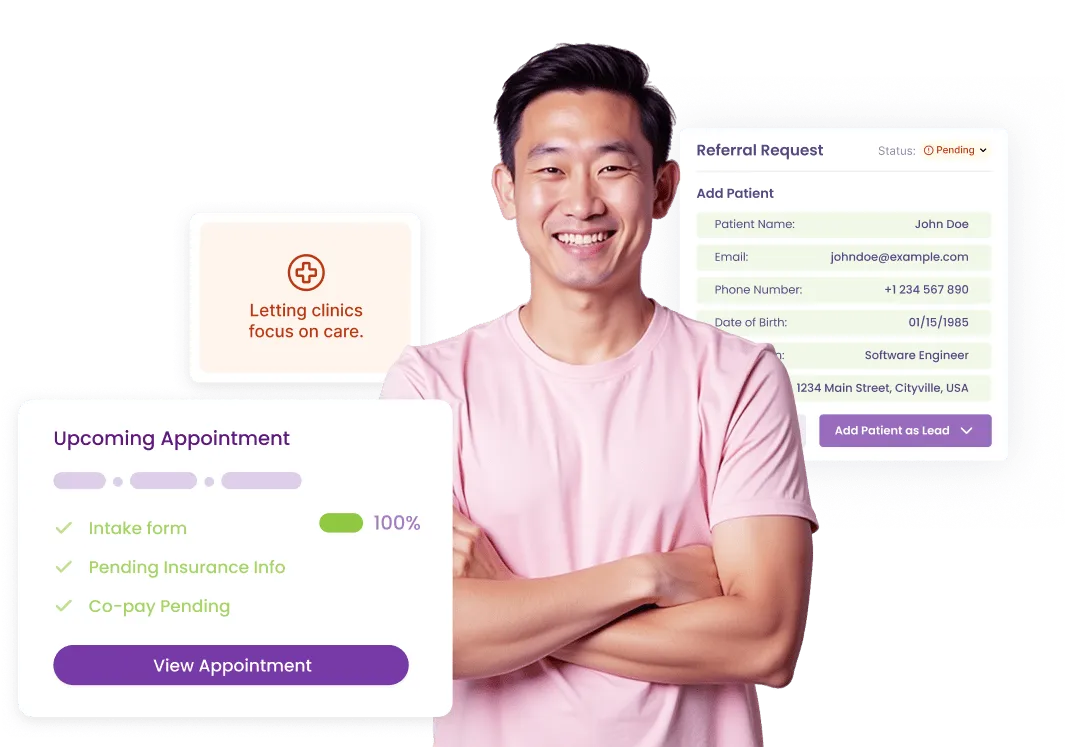H2032 – Substance Use Counseling / Behavioral Health Service
CPT code H2032 represents a distinct mental or behavioral health service, including evaluation, therapy, or care coordination.
What is CPT
H2032
?
H2032 is a key code utilized in the billing of counseling services specifically within substance use treatment contexts. This page provides an overview of the clinical applications for this code, outlines necessary documentation expectations, and discusses payer considerations that providers must be aware of. It is critical for clinicians to ensure that their clinical notes are aligned with evidence-based interventions, capturing not only treatment goals but also the specific interventions employed and measurable progress observed. In instances where the billing is time-based, accurate documentation of start and stop times is essential to substantiate the duration of the service billed.

Documentation Tips
When billing for time-based psychotherapy utilizing code H2032, it is crucial to meticulously document both the start and stop times of the session. Additionally, include details regarding the therapeutic modality employed, any assessment instruments used, the clinical focus of the session, and the patient's response to the treatment interventions. A well-structured plan for follow-up should also be documented. For any standardized assessment instruments administered, retain copies of the completed tools in the patient's record. In telehealth scenarios, it is important to document the patient's consent for teletherapy and the specific platform used for the session. Adopting consistent documentation frameworks, such as the SOAP (Subjective, Objective, Assessment, Plan) or DAP (Data, Assessment, Plan) formats, can greatly enhance audit readiness and ensure compliance with payer requirements.

At a Glance
- Service Type: Substance Use Treatment
- Use Case: Individual and Group Counseling
- Typical Setting: Outpatient clinics, residential treatment facilities, or telehealth platforms (subject to individual payer policies)
- Billing Unit: Per session or per assessment instrument, depending on specific payer guidelines
- Common Pairings: 90791 (Psychiatric Diagnostic Evaluation), 96127 (Brief emotional/behavioral assessment), various psychotherapy codes
Billing Examples
Consider a situation where a counselor provides relapse prevention counseling. In this case, the clinician documents the patient’s identified triggers, coping strategies discussed, and updates made to the treatment plan based on the patient’s progress. Another example may include a group therapy session focused on building social skills among individuals in recovery, where the clinician notes each participant's engagement and contributions. It is essential to remember that billing for group therapy and individual counseling typically falls under different HCPCS/CPT codes, and adherence to payer-specific billing rules is mandatory to avoid claims denials.
Compliance Guidelines
- Confirm payer coverage and authorization requirements prior to billing to avoid service denials.
- Thoroughly document medical necessity by linking the services provided to relevant ICD-10 diagnoses to support claims.
- Utilize correct modifiers for billing, such as modifier 95 for telehealth services, ensuring compliance with payer regulations.
- Avoid upcoding; select the code that accurately reflects the documented time and level of service provided to maintain compliance.
- Conduct regular audits of billing practices and documentation processes to minimize claim denials and enhance the quality of patient records.
Common ICD-10 Codes
Helpful links for mental health billing and documentation
- F10.20 (Alcohol Use Disorder, unspecified)
- F11.21 (Opioid Use Disorder, moderate)
- F19.20 (Other Psychoactive Substance Use Disorder, unspecified)
- F10.10 (Alcohol Use Disorder, mild)
- F12.20 (Cannabis Use Disorder, unspecified)
Additional Resources
Helpful links for mental health billing and documentation
Related CPT Codes
Helpful links for mental health billing and documentation
Got questions? We’ve got answers.
Need more help? Reach out to us.
Q1: What specific services does this code cover?
A: H2032 is designated for counseling services that align with substance use treatment, emphasizing the importance of thorough documentation that supports the billed service.
Q2: Is telehealth an acceptable delivery method for this service?
A: Yes, many payers allow billing for telehealth services when they are provided synchronously, and it is crucial to document consent and use appropriate modifiers. Always verify specific payer policies.
Q3: What kind of documentation do payers typically require?
A: Payers usually request detailed documentation that includes the time spent, therapeutic techniques or assessment instruments utilized, the patient's responses during the session, and a link to applicable ICD-10 diagnoses.
Q4: Can this code be billed in conjunction with other services?
A: Yes, when billing for multiple services, it is essential to document distinct time allocations and justifications for each service provided; utilize add-on codes or E/M separation rules where relevant.
Q5: What are common reasons for denial related to this code?
A: Common denial reasons include insufficient time documentation, lack of medical necessity, incorrect use of modifiers, or billing beyond the frequency limitations set by payers.

